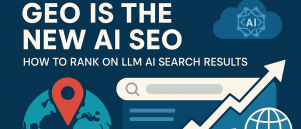Introduction
What is AI?
AI, or Artificial Intelligence, is a branch of computer science that focuses on creating intelligent machines capable of performing tasks that typically require human intelligence. These tasks include learning, reasoning, problem-solving, perception, and language understanding. With advancements in technology, AI has become increasingly sophisticated and is now being used in various industries, including finance, healthcare, and marketing. The potential of AI to make money is immense, as it can analyze vast amounts of data, identify patterns, and make predictions, leading to more informed decision-making and improved efficiency. However, it is important to note that AI is not a guaranteed money-making tool, as its success depends on various factors such as data quality, algorithm accuracy, and human oversight. Nonetheless, when utilized effectively, AI has the potential to revolutionize businesses and generate significant financial returns.
The rise of AI
The rise of AI has revolutionized various industries, including finance, healthcare, and retail. With the ability to analyze massive amounts of data and make predictions, AI has become an invaluable tool for businesses looking to increase their profits. From algorithmic trading in the stock market to personalized recommendations in e-commerce, AI has proven its potential to generate substantial financial gains. As technology continues to advance, the integration of AI into money-making strategies is only expected to grow, opening up new opportunities for individuals and businesses alike.
AI in various industries
AI has revolutionized various industries, bringing about significant advancements and transforming the way businesses operate. In the healthcare sector, AI is being used to improve diagnoses, develop personalized treatment plans, and enhance patient care. In the financial industry, AI algorithms are employed for fraud detection, risk assessment, and algorithmic trading. Additionally, AI is playing a crucial role in the transportation sector by enabling autonomous vehicles and optimizing traffic flow. From retail to manufacturing, AI is being utilized to streamline operations, increase efficiency, and deliver personalized customer experiences. As AI continues to evolve, its potential to generate substantial financial returns across industries is becoming increasingly evident.
AI and Financial Markets

AI in stock trading
AI in stock trading has become increasingly popular in recent years. With the advancements in machine learning and data analysis, AI algorithms are now able to analyze vast amounts of data and make predictions on stock market trends. This has led to the development of automated trading systems that can execute trades based on AI-generated signals. These systems are designed to take advantage of market inefficiencies and generate profits for investors. However, it is important to note that AI in stock trading is not without risks. The unpredictable nature of the stock market and the limitations of AI algorithms mean that there is still a degree of uncertainty involved. Nevertheless, many investors are embracing AI as a tool to enhance their trading strategies and potentially increase their profits.
AI in investment management
AI in investment management has revolutionized the way financial decisions are made. With the ability to analyze vast amounts of data and identify patterns and trends, AI algorithms can provide valuable insights and predictions for investment strategies. This technology has the potential to improve portfolio management, risk assessment, and decision-making processes, ultimately leading to better returns for investors. Additionally, AI can automate routine tasks, freeing up time for investment professionals to focus on more strategic activities. As AI continues to advance, it is expected to play an increasingly significant role in the world of investment management, offering new opportunities for individuals and businesses to make money.
AI in risk assessment
AI in risk assessment has revolutionized the way businesses evaluate potential risks and make informed decisions. By utilizing advanced algorithms and machine learning techniques, AI systems can analyze vast amounts of data and identify patterns that humans may overlook. This enables businesses to assess risks more accurately, predict potential outcomes, and take proactive measures to mitigate them. AI-powered risk assessment not only saves time and resources but also enhances the overall efficiency and effectiveness of risk management strategies. With the continuous advancements in AI technology, we can expect further improvements in risk assessment capabilities, leading to better decision-making and ultimately, the potential to make more money.
AI and E-commerce
AI in personalized recommendations
AI in personalized recommendations has revolutionized the way businesses operate. By analyzing vast amounts of data, AI algorithms can now accurately predict and suggest personalized recommendations to users. This not only enhances the user experience but also increases the chances of generating revenue for businesses. With AI, companies can offer tailored product or content recommendations, leading to higher customer satisfaction and engagement. Additionally, AI-powered recommendation systems can help businesses optimize their marketing strategies by targeting the right audience with the right products or services. Overall, AI in personalized recommendations has proven to be a game-changer in the pursuit of making money through intelligent technology.
AI in customer service
AI in customer service has revolutionized the way businesses interact with their customers. With the advancements in natural language processing and machine learning, AI-powered chatbots and virtual assistants have become increasingly sophisticated in understanding and responding to customer inquiries. These intelligent systems can provide instant support, answer frequently asked questions, and even handle complex transactions. By leveraging AI in customer service, businesses can enhance customer satisfaction, improve response times, and ultimately increase revenue. The use of AI in customer service is a testament to the power of technology in driving business growth and profitability.
AI in fraud detection
AI in fraud detection has revolutionized the way businesses protect themselves against financial losses. By leveraging advanced algorithms and machine learning techniques, AI can analyze large volumes of data in real-time to identify patterns and anomalies that may indicate fraudulent activity. This enables companies to proactively detect and prevent fraud, saving them significant amounts of money. Additionally, AI can continuously learn and adapt to new fraud techniques, making it a highly effective tool in the ongoing battle against financial crime.
AI and Online Advertising

AI in ad targeting
AI in ad targeting has revolutionized the way businesses reach their target audience. With the power of artificial intelligence, advertisers can now analyze vast amounts of data to understand consumer behavior and preferences. This enables them to create highly personalized and relevant ads that are more likely to resonate with their target market. AI algorithms can also optimize ad placements and budgets in real-time, ensuring that every advertising dollar is spent effectively. As a result, businesses can achieve higher conversion rates, increase their return on investment, and ultimately make more money with the help of AI in ad targeting.
AI in ad optimization
AI in ad optimization is revolutionizing the way businesses approach their marketing strategies. With the power of artificial intelligence, companies can now analyze vast amounts of data to identify trends, target specific audiences, and optimize ad campaigns for maximum effectiveness. By leveraging AI algorithms, businesses can make data-driven decisions, resulting in improved ad performance, higher conversion rates, and ultimately, increased revenue. The use of AI in ad optimization not only saves time and resources but also allows businesses to stay ahead of the competition in the ever-evolving digital advertising landscape.
AI in ad fraud prevention
AI in ad fraud prevention plays a crucial role in detecting and mitigating fraudulent activities in the digital advertising industry. With the increasing complexity and sophistication of ad fraud techniques, traditional methods of detection have become inadequate. However, AI-powered solutions have the capability to analyze large volumes of data in real-time, identify patterns, and detect anomalies that indicate fraudulent behavior. By leveraging machine learning algorithms, AI can continuously learn and adapt to new fraud patterns, improving its accuracy over time. This not only helps advertisers and publishers save money by preventing ad fraud but also ensures a fair and transparent digital advertising ecosystem for all stakeholders.
AI and Real Estate

AI in property valuation
AI has revolutionized various industries, and property valuation is no exception. With the advancements in machine learning and data analytics, AI algorithms can now analyze vast amounts of property data to provide accurate and unbiased valuations. These algorithms consider factors such as location, size, amenities, and market trends to determine the value of a property. By leveraging AI in property valuation, investors and real estate professionals can make more informed decisions, identify potential investment opportunities, and maximize their returns. Furthermore, AI can help streamline the valuation process, saving time and resources. Overall, AI has the potential to significantly impact the property valuation industry by enhancing accuracy, efficiency, and profitability.
AI in property management
AI in property management has the potential to revolutionize the way real estate professionals operate. With the advancements in machine learning and predictive analytics, AI can help property managers streamline their operations, improve tenant experiences, and optimize property performance. From automating routine tasks like rent collection and maintenance requests to analyzing market trends and predicting property values, AI technology can provide invaluable insights and efficiencies. By leveraging AI, property managers can make more informed decisions, enhance operational efficiency, and ultimately increase their bottom line. As the real estate industry continues to embrace digital transformation, AI is poised to play a pivotal role in shaping the future of property management.
AI in real estate investment
AI has revolutionized various industries, and real estate investment is no exception. With the power of AI, investors can now make more informed decisions and maximize their returns. AI algorithms can analyze vast amounts of data, including market trends, property values, and rental rates, to identify lucrative investment opportunities. Additionally, AI can automate the process of property valuation, making it faster and more accurate. This not only saves time for investors but also reduces the risk of human error. Furthermore, AI-powered tools can predict future market trends, helping investors stay ahead of the curve and make strategic investment choices. As AI continues to advance, its potential to generate significant profits in the real estate investment sector is undeniable.
Conclusion

The future of AI in making money
The future of AI in making money is incredibly promising. With advancements in machine learning and data analysis, AI has the potential to revolutionize various industries and create new opportunities for generating income. From automated trading systems that can predict market trends with high accuracy to AI-powered customer service chatbots that can enhance customer satisfaction and increase sales, the applications of AI in making money are vast. Additionally, AI can also streamline business processes, optimize decision-making, and improve efficiency, leading to cost savings and increased profitability. As technology continues to evolve, the future of AI in making money looks bright, offering individuals and businesses alike the potential to harness its power and achieve financial success.
Challenges and considerations
Challenges and considerations surrounding the use of AI to make money are abundant. One major challenge is the potential for bias and discrimination in AI algorithms, which can lead to unfair outcomes and perpetuate existing inequalities. Additionally, the lack of transparency and interpretability in AI models poses a challenge, as it can be difficult to understand how decisions are being made. Another consideration is the ethical implications of using AI for financial gain, as it raises questions about the impact on employment, privacy, and the concentration of power. Finally, there is the constant need to keep up with rapidly evolving technology and ensure the security and reliability of AI systems. Despite these challenges and considerations, leveraging AI to make money has the potential to revolutionize various industries and create new opportunities for growth and innovation.
Final thoughts
In conclusion, the use of AI to make money has become increasingly popular in recent years. With its ability to analyze large amounts of data, identify patterns, and make predictions, AI has the potential to revolutionize various industries and create new opportunities for individuals to generate income. However, it is important to note that AI is not a guaranteed solution for making money. Success in using AI for financial gain requires a deep understanding of the technology, careful planning, and continuous learning and adaptation. Additionally, ethical considerations must be taken into account to ensure that AI is used responsibly and for the benefit of society as a whole. Overall, while AI can be a powerful tool in the pursuit of financial success, it is crucial to approach its implementation with caution and a well-informed strategy.





